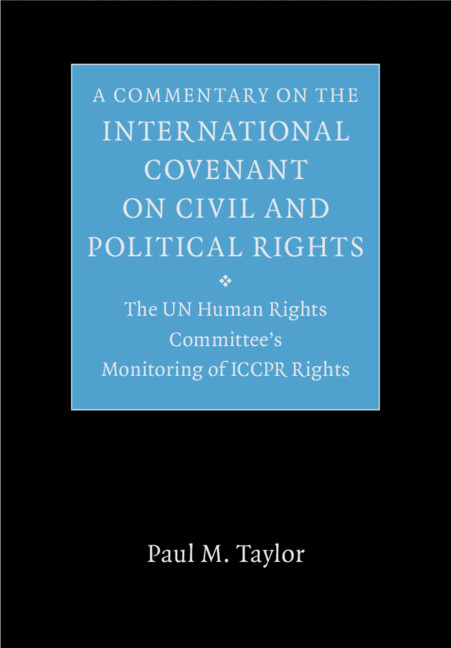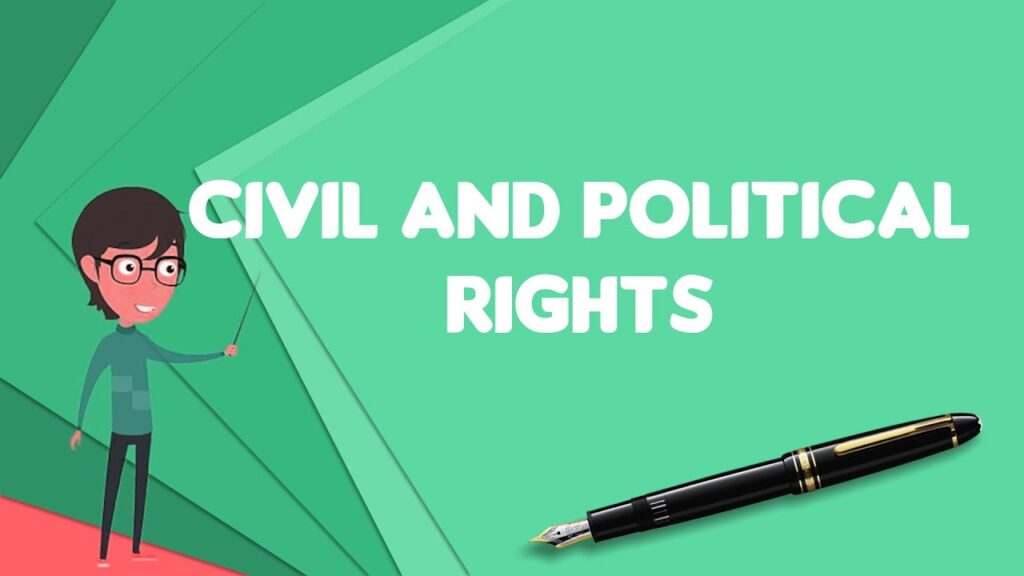There are a number of important differences between civil and political rights. Civil rights refer to the protections afforded to individuals from discrimination on the basis of race, religion, gender, or other factors. Political rights, on the other hand, relate to the individual’s right to participate in the political process and to have their voices heard on matters of public policy.
While civil rights are typically enshrined in national laws and constitutions, political rights are more often protected by international treaties and conventions.
There are a lot of different types of rights that people have. Civil rights and political rights are two of the most important types of rights. Here is a look at the difference between civil and political rights:
What are civil rights?
Civil rights are the basic freedoms and protections that every person is entitled to. These include the right to life, liberty, and security; freedom from torture and inhuman or degrading treatment; freedom from slavery and forced labor; the right to a fair trial; and many others.
Everyone has these civil rights, regardless of race, religion, nationality, or any other status.
What are political rights?
Political rights are the freedoms and protections that allow people to participate in the political process.
This includes things like the right to vote, the right to run for office, the right to free speech, and more. Not everyone has all of these political rights – for example, in many countries only adults can vote – but everyone should have some form of political participation.
So, what’s the difference between civil and political rights?
Basically, civil rights are your basic human rights while politicalrights give you a say in how your country is run. Both types of rights are essential for a just society!
What is Civil and political rights?, Explain Civil and political rights
What are Political And Civil Rights?
Political and civil rights are the rights of individuals to participate in the political process, including the right to vote, freedom of speech, freedom of assembly and freedom of association. Civil rights are the rights of individuals to be treated equally before the law, regardless of race, religion or national origin.
What is the Difference between Civil Political And Social Rights?
There are many different types of rights that people have. Civil rights are the basic rights that all citizens have, such as the right to vote and the right to a fair trial. Political rights are the rights that allow citizens to participate in the political process, such as the right to run for office and the right to campaign for candidates.
Social rights are the rights that ensure people can live their lives with dignity, such as the right to housing and healthcare.
The main difference between civil rights and political rights is that civil rights are guaranteed by law, while political rights are not. This means that if someone violates your civil rights, you can take them to court and they will be held accountable.
However, if someone violates your political rights, there is no legal recourse available.
Another difference between civilrights and politicalrights is that civilrights protect individuals from infringement by government actors, while politicalrights protect individuals from infringement by private citizens or groups. This means that if the government tries to take away your civil liberties, you can challenge them in court.
However, if a private citizen or group violates your political liberties, there is no legal way to stop them.
The final difference between civilrights andpoliticalrights is thatcivilrights can be positive or negative, whilepoliticalrights can only be positive. This means thatcivilliberties can give you new freedoms (such as freedom of speech), but they can also place restrictions on your behavior (such as hate speech laws).
Politicalliberties only ever give you more freedoms (such as freedom of association), they never restrict your behavior in any way.
What is the Difference between Civil Rights And Civil Rights?
There are a number of key differences between civil rights and civil liberties. Civil rights refer to the freedoms guaranteed to all citizens by the Constitution, while civil liberties are those freedoms that protect individuals from the government.
Civil rights guarantee equality before the law and prohibit discrimination on the basis of race, religion, or other factors.
Civil liberties, on the other hand, limit government power and protect individual freedom. Among other things, they include freedom of speech, religion, and assembly; due process protections; and privacy rights.
In general, civil rights ensure that all citizens are treated equally under the law, while civil liberties protect individuals from government overreach.
Both are essential to a free and just society.
What are the Political Rights?
Political rights are the rights of individuals to participate in the political process. These rights allow citizens to vote, hold office, and engage in political activity without fear of reprisal. Political rights are essential to a functioning democracy, as they ensure that all voices can be heard and that everyone has a say in how their government is run.
Without these rights, it would be easy for those in power to abuse their position and silence dissent. Political rights help to keep governments accountable to their people and prevent tyranny.

Credit: www.cambridge.org
What is the Difference between Civil And Political Rights Brainly
When it comes to civil rights vs. political rights, there is a big difference. Civil rights are the basic human rights that every person is entitled to, regardless of citizenship status. These include the right to life, liberty, and security of person; freedom from torture and inhuman or degrading treatment; freedom from slavery and servitude; and the right to equality before the law.
Political rights, on the other hand, are those associated with being a member of a particular political community. They includes things like the right to vote, stand for public office, and participate in the political process. In some countries, political rights are also extended to non-citizens (e.g., resident aliens), but this is not always the case.
So, when it comes down to it, civil rights are about ensuring that everyone has basic human rights, while political rights deal with participation in the political process.
What are Civil Rights
When we think of civil rights, the first thing that comes to mind is probably the Civil Rights Act of 1964. This landmark piece of legislation outlawed discrimination on the basis of race, color, religion, sex, or national origin. But what exactly are civil rights?
Civil rights are those basic rights that all citizens are entitled to regardless of their race, ethnicity, gender, religion, or other status. These include the right to life, liberty, and due process; freedom from discrimination; and equality before the law.
While the Civil Rights Act was a major step forward in protecting these basic rights for all Americans, unfortunately discrimination and other civil rights violations are still far too common.
That’s why it’s important for everyone to know their civil rights and how to assert them if they believe they’ve been violated.
What is the Difference between Civil And Political Rights And Economic, Social And Cultural Rights
The International Covenant on Economic, Social and Cultural Rights (ICESCR) is a multilateral treaty adopted by the United Nations General Assembly on December 16, 1966, and in force since January 3, 1976. The ICESCR is part of the International Bill of Human Rights, along with the Universal Declaration of Human Rights (UDHR) and the International Covenant on Civil and Political Rights (ICCPR). The covenant commits its parties to work toward the granting of economic, social, and cultural rights to individuals, including labour rights and the right to health.
Whereas civil and political rights are often seen as negative rights that protect individuals from interference by governments or other actors, economic, social and cultural rights are sometimes seen as positive rights that require active measures by governments to ensure their realization. This distinction has been criticized by some who argue that all human rights are interdependent and indivisible.
Conclusion
There are many different types of rights that people have, but two of the most common are civil rights and political rights. Both civil and political rights are important, but they have some key differences.
Civil rights are those that protect individuals from discrimination and ensure that they have equal access to opportunities and resources.
Political rights, on the other hand, relate to an individual’s right to participate in the political process.
While both civil and political rights are important, they serve different purposes. Civil rights help to create a level playing field for all citizens, while political rights allow individuals to have a say in how their country is run.


